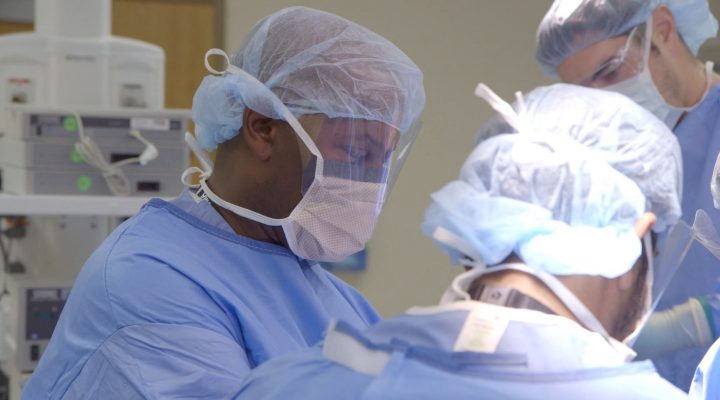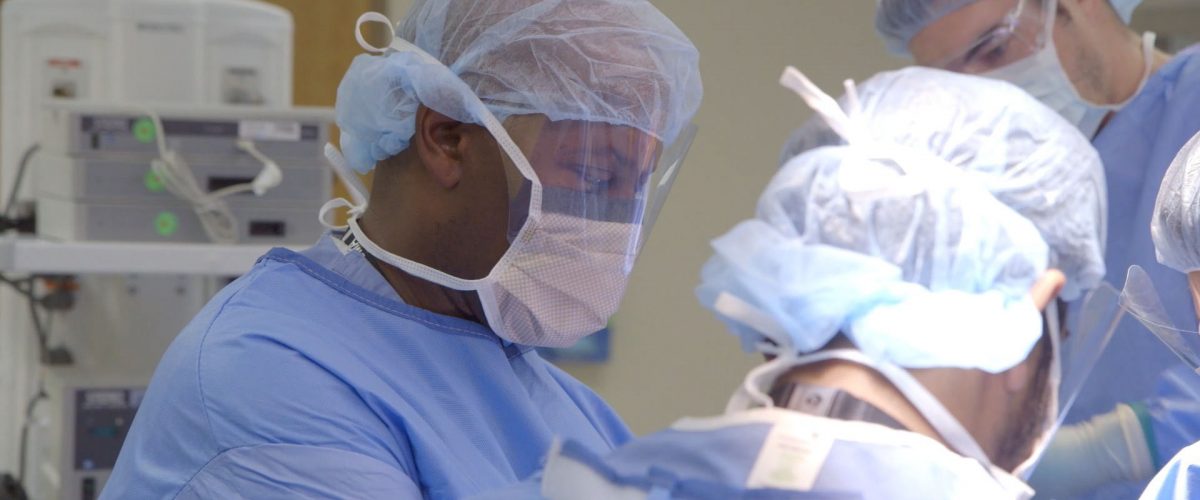Brian Williams’ entire life changed in the summer of 2016 as a trauma surgeon working in Dallas. That was the night five Dallas police officers were gunned down amid a peaceful protest of police killings of Black men nationwide.
The pain of that night was one of the factors that led Williams to seek a seat in the U.S. House of Representatives, where he would have been the first trauma surgeon and the first Black doctor.
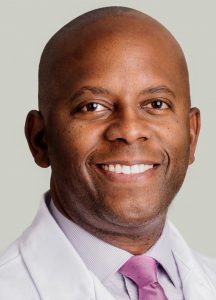
Brian Williams (Photo by Jean Lachat)
Those hopes were dashed yesterday as he lost the Democratic primary for Texas’ 32nd Congressional district. But his story has been told in a new book, The Bodies Keep Coming.
It was July 7, 2016, when peaceful protests were scheduled around the country to call attention to the murders of Black men by police officers. This was four years before George Floyd and the summer of Black Lives Matter.
In 2016, the Dallas march became deadly when a lone sniper shot 14 police officers, killing five of them. Williams was on call at Parkland Hospital — the same hospital, although in a new building, where President John F. Kennedy was taken in 1963.
“Trying to save the lives of the police officers that night nearly broke me,” Williams said. “It’s just one of those nights where it’s hard to still explain even now, but I remember I had to change my bloodied scrubs, put on clean scrubs, go into the room, and tell this officer’s family about his death. And afterward, I went out into this corner part of the hospital where I’ve never been and just cried.
“That’s not something I do. But there I was that night, and I think it was just a combination of everything that had happened over the past few days, over the past year, and then that feeling I should have been able to save these police officers. I began to think about, ‘What am I doing?’”
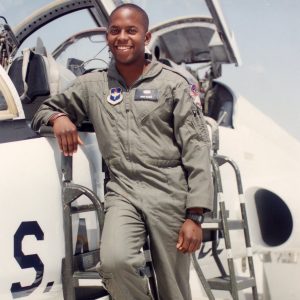
Brian Williams
That self-reflection would lead Williams to speak out against gun violence at a press conference that had been scheduled for the doctors who treated the police officers. Williams was not planning to attend until his wife suggested he appear there.
“People who go through trauma understand what I’m saying: You can function every day, you can talk to people, but inside there’s turmoil going on. And that’s how I felt. And then four days after the shooting, we had this live press conference being viewed around the world. And after that, things changed. My wife said, ‘You must go to the press conference just to be seen.’
“That just says a lot about the power of us as Black men, our presence and what that means. To just be seen there and say nothing would make a difference. She was saying, ‘Look, people out there are saying Black men are evil, that they deserve to die.’ My wife thought they needed to know there was a Black doctor that night trying to save these police officers. I did end up speaking because what was not said at the press conference just didn’t sit well with me — the normal things we say after mass shootings. But we weren’t talking about escalating gun violence, structural racism, the repeated police shootings.”
“We weren’t talking about escalating gun violence, structural racism, the repeated police shootings.”
Those unsaid things would lead Williams on a journey to journal and reflect on what he had seen throughout the years as a doctor. That in turn led him down the path to writing a book.
“I had this body of journal entries,” he explained. “After the shooting, there was a time I went to therapy and part of my therapy was to write a trauma narrative about the night of July 16. And in doing so, that unlocked a whole lot of things. And then from that, it grew into this book. The book is meant to be a call to action for the reader.
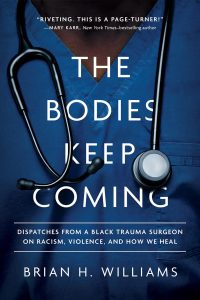 “The book is not about me. I am just the character you’re following through this world. But the end of the book is a call to action for you. When I finished the book, my call to action was like, ‘Oh, I, want to run for Congress.’ That was not the intent as I was writing the book. But once I was done and went through all that self-reflection and finished, I’m like, ‘I have to run for Congress, because that is where big things can happen at the structural level.’ That is, you can work across generations. There are only 19 doctors in Congress, but there’s never been a trauma surgeon in Congress, and there’s never been a Black doctor with voting privileges in Congress.”
“The book is not about me. I am just the character you’re following through this world. But the end of the book is a call to action for you. When I finished the book, my call to action was like, ‘Oh, I, want to run for Congress.’ That was not the intent as I was writing the book. But once I was done and went through all that self-reflection and finished, I’m like, ‘I have to run for Congress, because that is where big things can happen at the structural level.’ That is, you can work across generations. There are only 19 doctors in Congress, but there’s never been a trauma surgeon in Congress, and there’s never been a Black doctor with voting privileges in Congress.”
He ended up running to fill the seat being vacated by Colin Allred, another Black man, who will challenge Republican Ted Cruz for his U.S. Senate seat in November.
Williams knew he had to run for Congress not just to make history, but also to address the issues that he is concerned about.
“I served as a health policy adviser for former Speaker Nancy Pelosi and for Sen. Chris Murphy. So I had a chance to be part of that process and roll up my sleeves and help craft legislation and learn how it gets to the process to get to the floor for a vote,” he said. “What I learned from that was very inspiring because you see that you can do big things at the federal level when you have the right leaders there committed to doing the right things.
“And that’s what I want to do: To take my record of service as a veteran and then as a doctor and as someone who’s been on the Hill as an adviser, and not just be a member of Congress.”
This also is part of his faith journey, he added. “I’m still on the faith journey. I’ve talked about my faith journey in the book. I walked away from religion in my teenage years. As a young Black man having white people telling me about how to get redemption, that didn’t sit well with me. It didn’t seem like that was part of my story. But as I’ve gotten older, you know, marriage, a child, and the events after the shooting, I’m much more comfortable accepting that if I commit to just serving the greater good, I don’t have to understand everything.”
The day after the election, Williams tweeted: “While the outcome of this race is not what we had hoped, I’m deeply proud of what this campaign stood for: courage, integrity and service before self. Thank you to everyone who joined us in this fight to end gun violence, restore abortion rights and fix our broken health care system. … I got into this race because I’ve had to pronounce too many victims dead on arrival due to gun violence and while this campaign is over, I look forward to continuing that work alongside the tireless friends and activists who were part of this team.”

